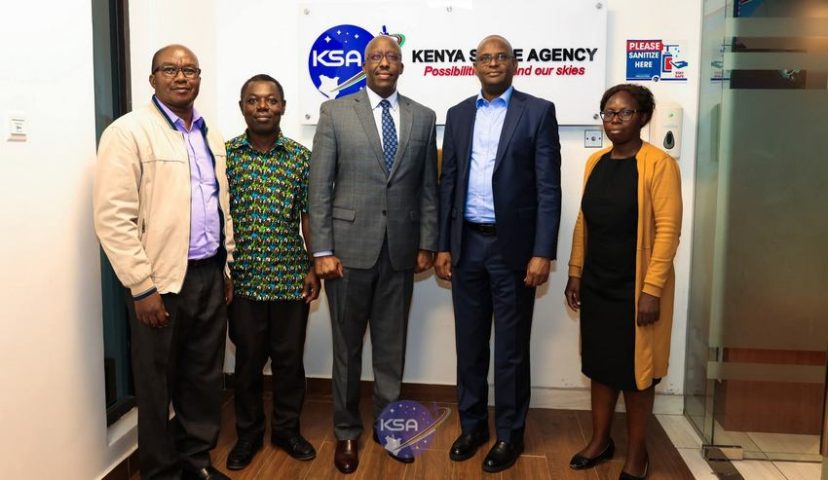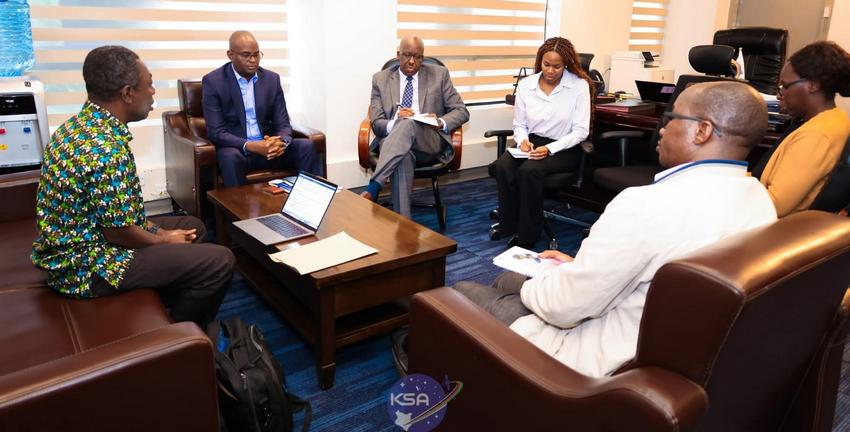Machakos University Partners in Pioneering Mars Habitat Simulation Research in Kenya
- Posted by admin
- Posted in Past Events, Research
Machakos University is taking bold strides in shaping Africa’s future in space science and sustainability. As a key partner in the ambitious Mars Habitat Simulation Programme and Research Station led by Mars Society Kenya and supported by the Kenya Space Agency (KSA), the university is cementing its place at the forefront of cutting-edge research and innovation.
On 13th May, Hon. Wario Guyo Adhe, Member of Parliament for North Horr Constituency, paid a courtesy call to Brig. Hillary Kipkosgey, Director General of KSA, to discuss the establishment of the Omni-Africa Space Exploration Analog Simulation (OASEAS) facility in Marsabit County’s Chalbi Desert.

Machakos University’s commitment to this transformative initiative was represented by Eng. Dr. Charles Mwaniki, Dean of the School of Engineering and Technology, who joined the delegation alongside Dr. Richard Damoah from Morgan State University (USA). Earlier on, in March 21st to 23rd 2025, Eng. Mwaniki had led a four-member team to Marsabit County in collaboration with the Futures Forum to conduct a comprehensive site assessment for the proposed OASEAS research facility. Brig. Kipkosgey lauded the initiative, highlighting its potential to drive innovation, enhance local research capacity, and position Kenya as a leader in the global space exploration agenda.

This world-class research station will simulate Martian conditions and support ground-breaking studies in:
- Robotics
- Renewable Energy
- Water & Waste Management
- Sustainable Architecture
- Biotechnology
- Agri-tech
- Food Technology
In a major leap forward, Mars Society Kenya will launch the OASEAS Habitat as part of the World’s Biggest Analog (WBA) 2025 competition, showcasing Kenya’s capacity to simulate life on Mars and test future-ready technologies. The OASEAS Habitat is not just a research station, it’s a symbol of African ingenuity and ambition.
With Machakos University’s active role, this historic project will empower students, researchers, and innovators across Africa to lead sustainable, space-focused solutions that benefit both Earth and beyond.
